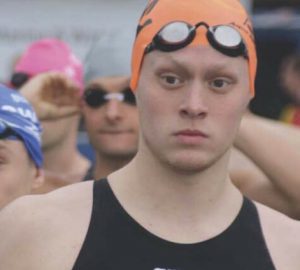5 goal setting tips to maximise your swim performance
Sports psychology consultant and active masters and open water swimmer, Helen Davis, looks at how to use goal setting techniques to maximise your swim performance.
Set specific goals
One of the most consistent findings from goal-setting literature is that specific goals produce higher levels of performance than no goals or general “do your best” goals. Identifying goals in behavioural terms is also important. For example, telling yourself to “sight really well” in a river would not be as helpful as telling yourself that you want to kick hard, every time you sight.
Set realistic, but challenging goals
Another consistent finding is that goals should be challenging and difficult, yet attainable. Goals that are too easy do not present a challenge and will lead to less effort. This could in turn lead to a mediocre performance. Conversely, setting goals that are too difficult and unrealistic will often result in failure. This can lead to frustration and lowered self-confidence, decreased motivation and performance. A realistic look at one’s chances of success is needed; it is a balance between setting oneself up for failure and pushing oneself to strive for success. In this middle ground reside challenging, realistic, attainable goals.
Set both short and long-term goals
Setting both short and long-term goals helps to keep motivation and performance high over time. Short- term or process goals are important because they provide feedback concerning progress towards the long-term goal. Progress goals allow you to focus on those small increments, which may make goals seem more attainable than would an otherwise seemingly impossible long-term goal.
Set goals for practice and competition
Daily practices encompass much more time commitment than competitions, which is why it is important to set practice and training goals. Practice goals should focus on both performance and non-performance outcomes. In addition, practice goals should focus on quantity or quality of skill mechanics and should push you past your comfort zone. Practice goals should be difficult enough to encourage you to strive to improve in some way every day; remember the sighting goals here.
Writing down your goals
Not only should goals be written down, they also should be recorded in a place that can easily be seen.








